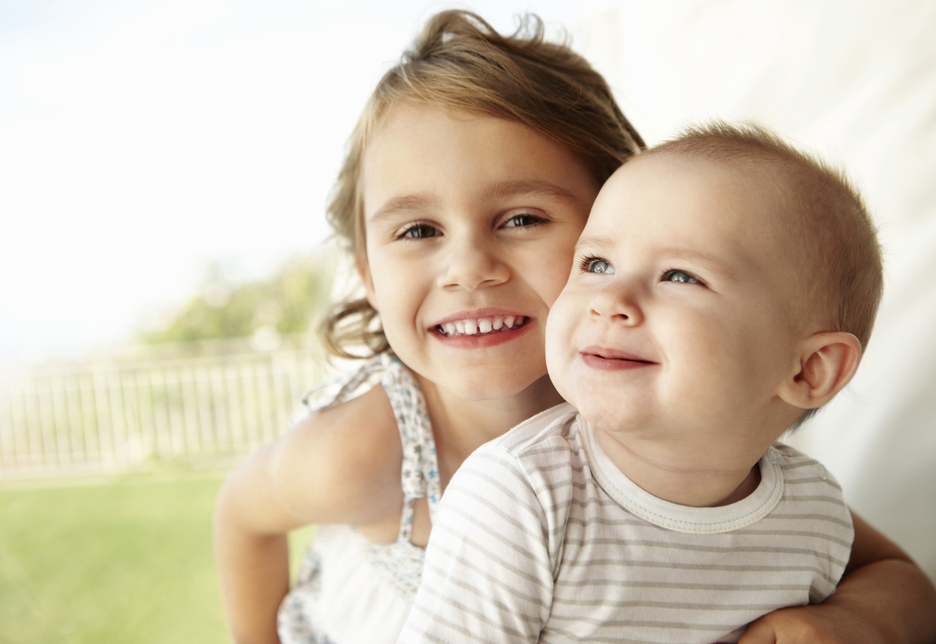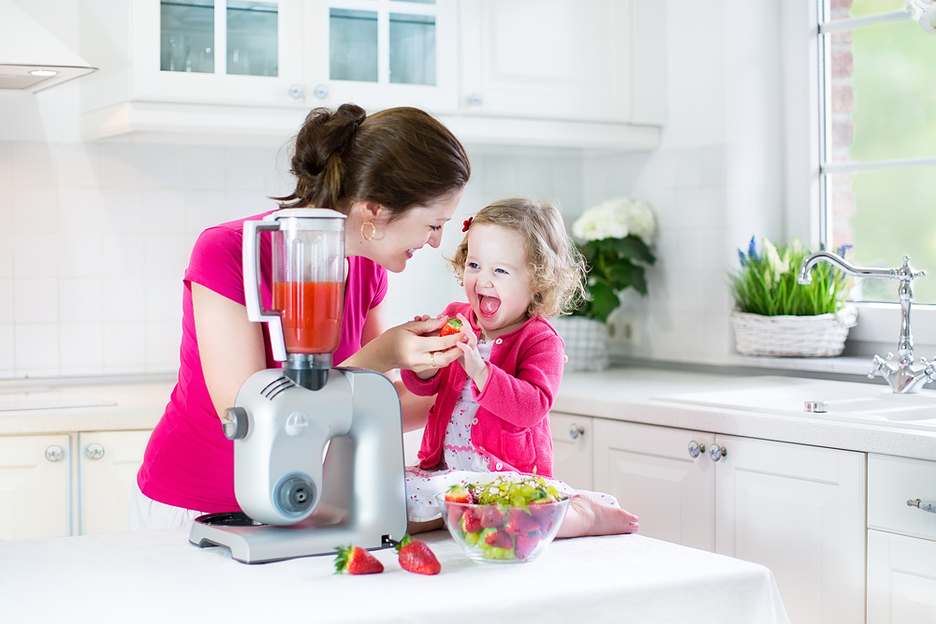

Nutrition
Almost an adult
At 12 months of age, we have finished the introduction of the major food groups. Our little ones have been sampling a variety in their diet and are now prepared to eat practically all that adults can.

Now what is important in their dietary education is, not just what they eat, but that, they develop a sense of eating correctly manners that they will carry with them into the future.
It is also important that we, the parents, take on the role of mentor so that our children eat healthily and maintain a balanced diet with an optimum supply of nutrients that will secure their correct development. We should be self conscious and act as a responsible guide for our children health.
As a general rule, we should never leave out fruit, vegetables, cereals, pulses, dairy products, meat, fish or eggs.
A balanced diet should contain daily dairy (around 500ml-700ml) and can be full cream; proteins (meat, fish and eggs) around 25-30g; carbohydrates (rice, pasta, pulses) around 100-150g; eats in quantities of no more than 45g.
These general recommendations will depend on the weight of your child, his height, his level of activity, his development and dentition. It is also important that you consult a specialist.
Children from one year old should have 5 meals a day, (breakfast, morning tea, lunch, afternoon tea and dinner) and if they require it, supper, which will consist primarily of dairy products.
Meals should now start to have three courses.

The menu for the day should be:
- Breakfast: ½ cup of full cream cow’s milk with cereal and a small portion of fruit.
- Morning Tea: Dairy Products with fruit
- Lunch: ½ cup of rice,pasta or pulses, fillet of fish or meat or 1 egg with a side of salad or vegetables
- Afternoon Tea: A dairy product, a small portion of fruit and some bread.
- Dinner: The same as the lunch
Their daily intake of olive oil should be 1 tablespoon a day. Don’t neglect to give them water which should be 1 to 1.2 litres a day, given throughout the day.
 English
English






